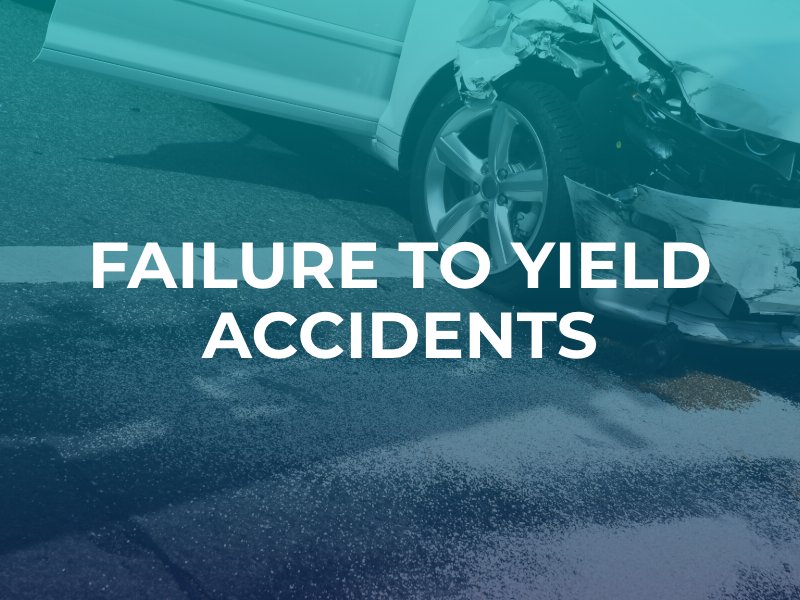How Are Failure To Yield Accidents Handled In GA?
Getting into a car accident is not something anybody wants to happen, but the reality is that vehicle accidents occur regularly in Georgia. In most cases, one or more drivers are to blame for a vehicle accident. One of the most common causes of Georgia vehicle accidents is a failure to yield by a careless or negligent driver. When one driver fails to yield the right of way, they can cause serious accidents and injuries for those in other vehicles, as well as for pedestrians and bicyclists. If you or a loved one have been the victim of a crash because another driver failed to yield the right of way, you need to know how these accidents are handled.

When is there a requirement to yield the right of way in Georgia?
Georgia law outlines many circumstances in which a driver must yield the right of way to others who are using the road. These laws cover yielding to other vehicles, bicyclists, and pedestrians. Some of the most common situations in which a driver must yield the right of way include:
- When a driver is approaching an unmarked intersection at the same time as another vehicle, the driver on the left should yield to the driver on the right.
- At a four-way stop, drivers must always yield to pedestrians. If there are no pedestrians, vehicles will proceed at the order that they arrived at the intersection. When two vehicles arrive at the same time, the vehicle on the right has the right of way.
- Any driver making a left-hand turn must yield the right of way to oncoming traffic.
- All drivers are required to yield to emergency vehicles that have their lights and sirens activated as well as to highway maintenance vehicles and workers in a construction zone.
- Any driver entering a street or highway must yield the right of way to vehicles already on the road.
- Drivers must stop for a school bus that has its lights activated and sign extended.
How is liability determined in these cases?
While it may seem straightforward that the driver who failed to yield will be responsible for covering damage an injury costs, proving liability in these cases can be difficult. The injury victim in these cases, or their attorney, will need to ensure that they have gathered all evidence necessary to show an insurance carrier or a jury that the other driver failed to yield the right of way. Evidence in these cases may include:
- Photo or video surveillance from the scene of the crash
- Statements from eyewitnesses to the crash
- Accident reports filled out by the officers at the scene
Insurance claims adjusters for the at-fault party will use this evidence to determine how much, if any, they want to pay in a settlement. If the insurance carrier refuses to offer a fair settlement or denies a claim, it may be necessary for the injury victim to file a personal injury lawsuit to recover the compensation they need.
What kind of compensation is available in these cases?
In the aftermath of an accident caused by a failure to yield, victims may be entitled to various types of compensation. This can include:
- Coverage of all medical bills
- Lost wages and benefits
- Any out-of-pocket expenses
- Pain and suffering damages
- Loss of personal enjoyment damages
The total amount of compensation awarded to a victim in these cases will vary depending on the facts surrounding each particular situation. Call us today to speak with our Atlanta car accident lawyers.